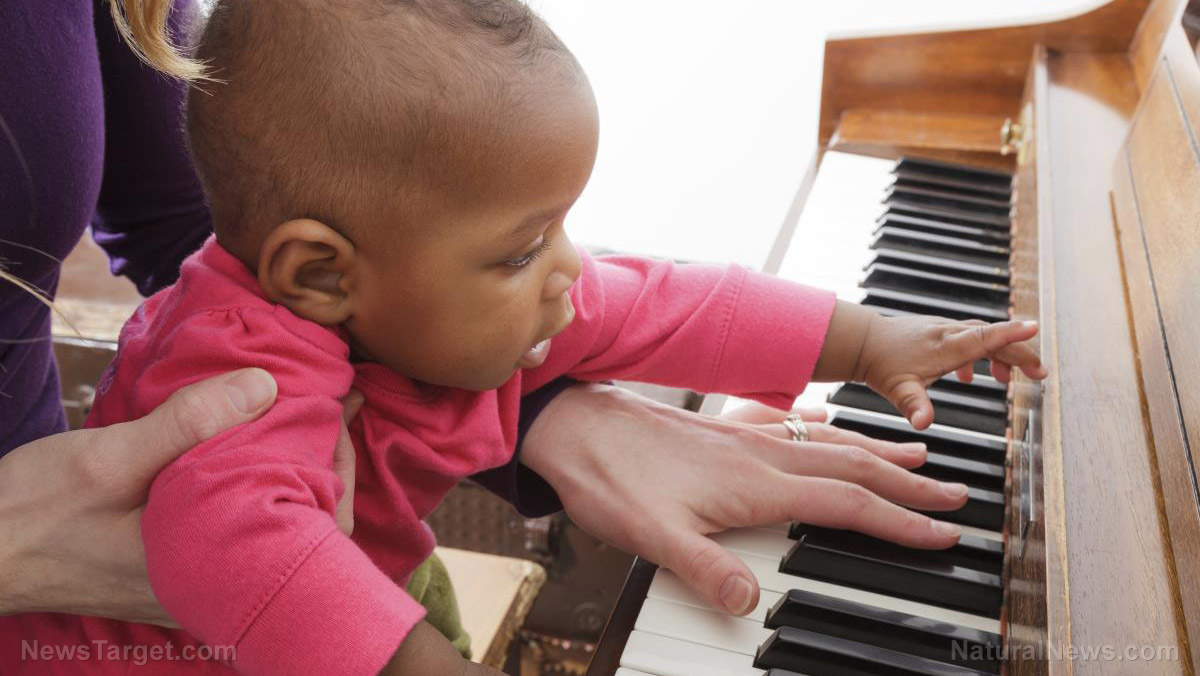A musical education improves academic performance across the board
06/08/2018 / By Janine Acero

Music is known to help children with cognitive development, but one study published in Frontiers in Neuroscience found that structured music lessons significantly enhance children’s academic performance by improving their cognitive abilities, including language-based learning and short-term memory. In addition, visual arts lessons were also found to improve children’s visual and spatial memory.
Schools have prioritized academic learning in their curriculum over learning music, which is seen as more of a luxury now than a necessary part of education.
“Despite indications that music has beneficial effects on cognition, music is disappearing from general education curricula,” according lead author Dr. Artur Jaschke, from VU University Amsterdam. “This inspired us to initiate a long-term study on the possible effects of music education on cognitive skills that may underlie academic achievement.”
The research team conducted the first large-scale, longitudinal study with 147 children across several Dutch schools, using a structured musical method developed by the Ministry of Research and Education in the Netherlands together with an expert center for arts education.
The children were divided into groups: The first group received music education, which involved a structured musical method; the second group received a visual arts education. Meanwhile, children in the third group did not receive any supplementary lessons.
Fast-forward to 2.5 years later, the research team assessed the children’s academic performance, as well as various cognitive skills including planning, inhibition, and memory retention.

The researchers found that children who received the structured music lessons, as well as visual arts classes, showed significant improvements in their visual and spatial short-term memory. Moreover, children who received music lessons showed improvements in language-based reasoning, as well as in their ability to plan, organize, and complete tasks.
“This suggests that the cognitive skills developed during music lessons can influence children’s cognitive abilities in completely unrelated subjects, leading to overall improved academic performance,” Dr. Jaschke remarked.
“Both music and arts classes are supposed to be applied throughout all Dutch primary schools by the year 2020,” says Dr Jaschke. “But considering our results, we hope that this study will support political developments to reintegrate music and arts education into schools around the world.”
The researchers hope their work will contribute to highlighting the importance of learning music and arts in human culture and cognitive development.
Other benefits of learning music
Learning to play an instrument has been known to sharpen a child’s memory, which in turn helps him/her retain more information. Below are other benefits of music lessons that may help your child bolster more than his/her academic achievements.
- Physical skills – Certain instruments help children develop their coordination and motor skills. Instruments not only help develop ambidexterity, but also enhance coordination and perfecting timing which can help kids with other hobbies, like dance and sports.
- Social skills – Group classes require peer interaction and communication, which encourage teamwork and problem solving skills.
- Discipline and patience – Learning an instrument teaches children to persevere through hours, months, and even years of practice before they reach specific goals, such as playing a solo piece or performing in an ensemble. Playing an instrument also improves children’s patience, teaches them peer respect, to sit still and be quiet for designated periods of time, and to be attentive.
- Self-esteem – Children develop the right attitude in presenting themselves in public as the learn music. Lessons offer a forum where children can learn to accept and give constructive criticism. Group lessons, in particular, may help children to better understand the concept of having room for improvement. (Related: Healing through music, not drugs: Brain-wave music therapy miraculously reduces night terrors, bad behavior in children.)
- Introduction to different cultures – Learning to play a variety of instruments can help children discover how music is essential in different cultures, as well as the specific tones and instruments each culture is known for. Exposing children to other cultures at a young age fosters open-mindedness about worlds and traditions beyond the ones they know.
Visit Brain.news for more studies involving children’s cognitive development.
Sources include:
Submit a correction >>
Tagged Under:
academic performance, academics, brain function, children's health, cognitive development, cognitive function, culture and arts, mind body science, music, music classes, music lessons, school curriculum, short-term memory, spatial memory, visual arts, visual memory
This article may contain statements that reflect the opinion of the author





















